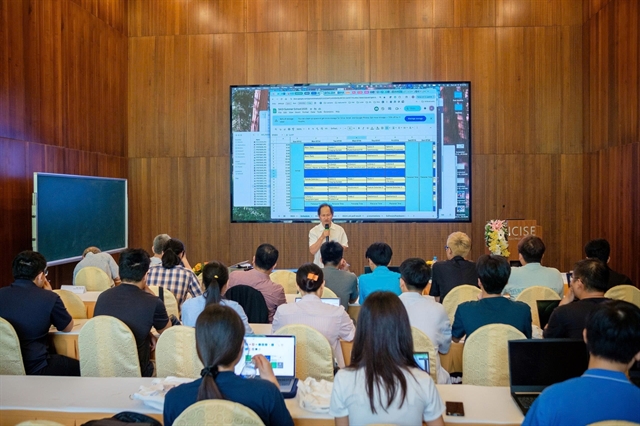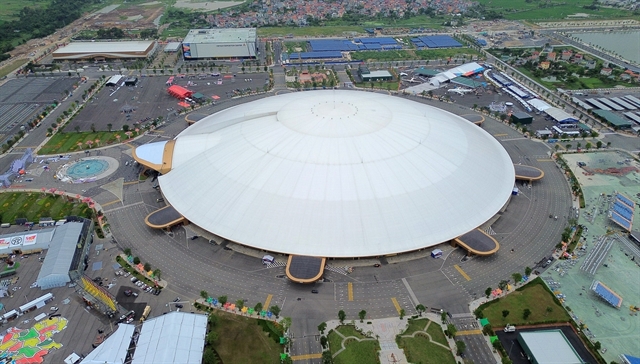 Society
Society


|
| The programme gathers nearly 40 scientists, young researchers, PhD students, engineers, technicians and students from five countries. — VNA/VNS Photo Sỹ Thắng |
GIA LAI — The "Rencontres du Việt Nam" association and the International Centre for Interdisciplinary Science and Education (ICISE) on Monday opened the SAGI 2025 Summer School in Quy Nhơn Nam Ward in the central province of Gia Lai, aiming to develop young human resources in the field of astrophysics in Việt Nam.
The two-week programme gathers nearly 40 scientists, young researchers, PhD students, engineers, technicians, and students from five countries.
With its lecturers from prestigious research institutes and universities, participating scientists, researchers, and students are set to receive intensive practical training on developing instruments used in astrophysical research. The curriculum features a series of closely structured modules covering optics, electronics, scientific measurement techniques, and instrumentation control, combined with hands-on lab work.
A highlight of the programme will take place from July 21 to 25, when participants will join 12 “Project Lab” sessions. Divided into groups, they will design and carry out integrated projects and present their results during the closing ceremony.
The summer school is one of the flagship initiatives of the Simons Astrophysics Group at ICISE (SAGI), which was recently established in Gia Lai with support from the US-based Simons Foundation and the guidance of Vietnamese-origin scientists such as Dr. Nguyễn Trọng Hiền, Professor Hoàng Chí Thiêm (Korea Astronomy and Space Science Institute), and Dr. Nguyễn Lương Quang.
With the long-term goal of nurturing the next generation of astrophysicists in Việt Nam, SAGI continues to organise high-quality academic activities and foster international collaboration. — VNS




